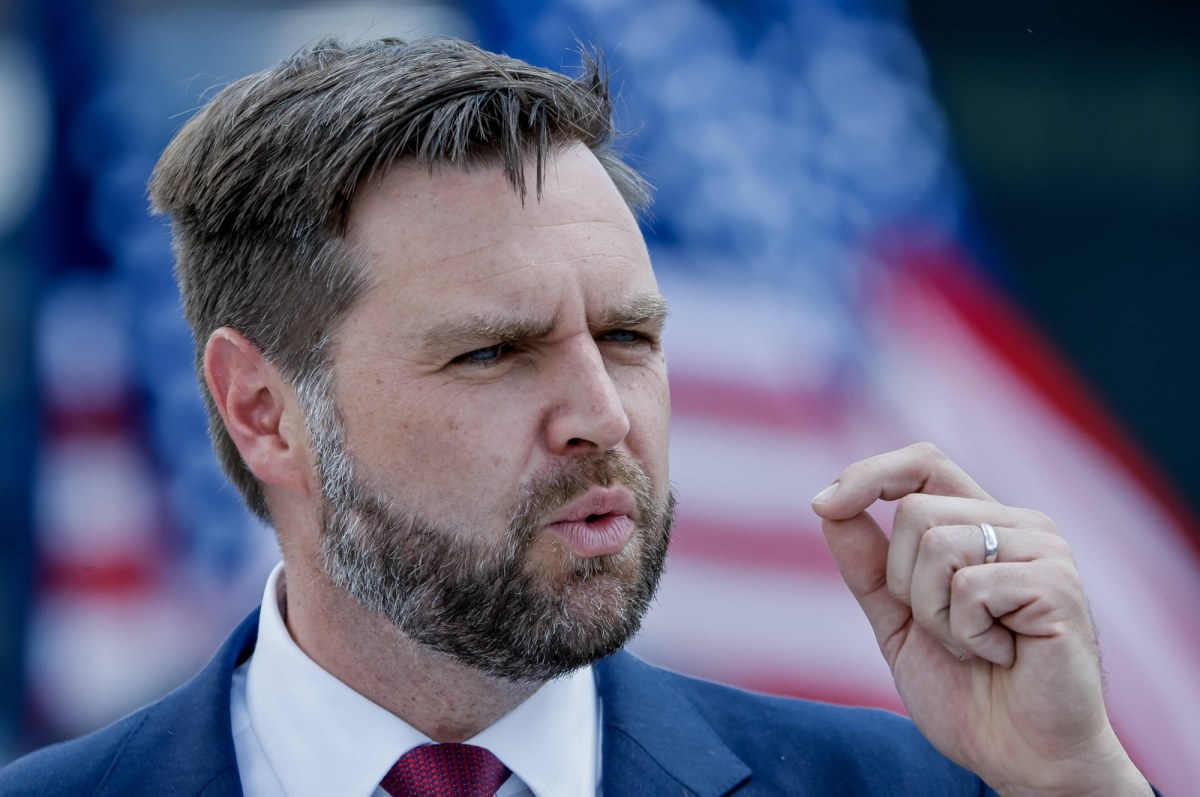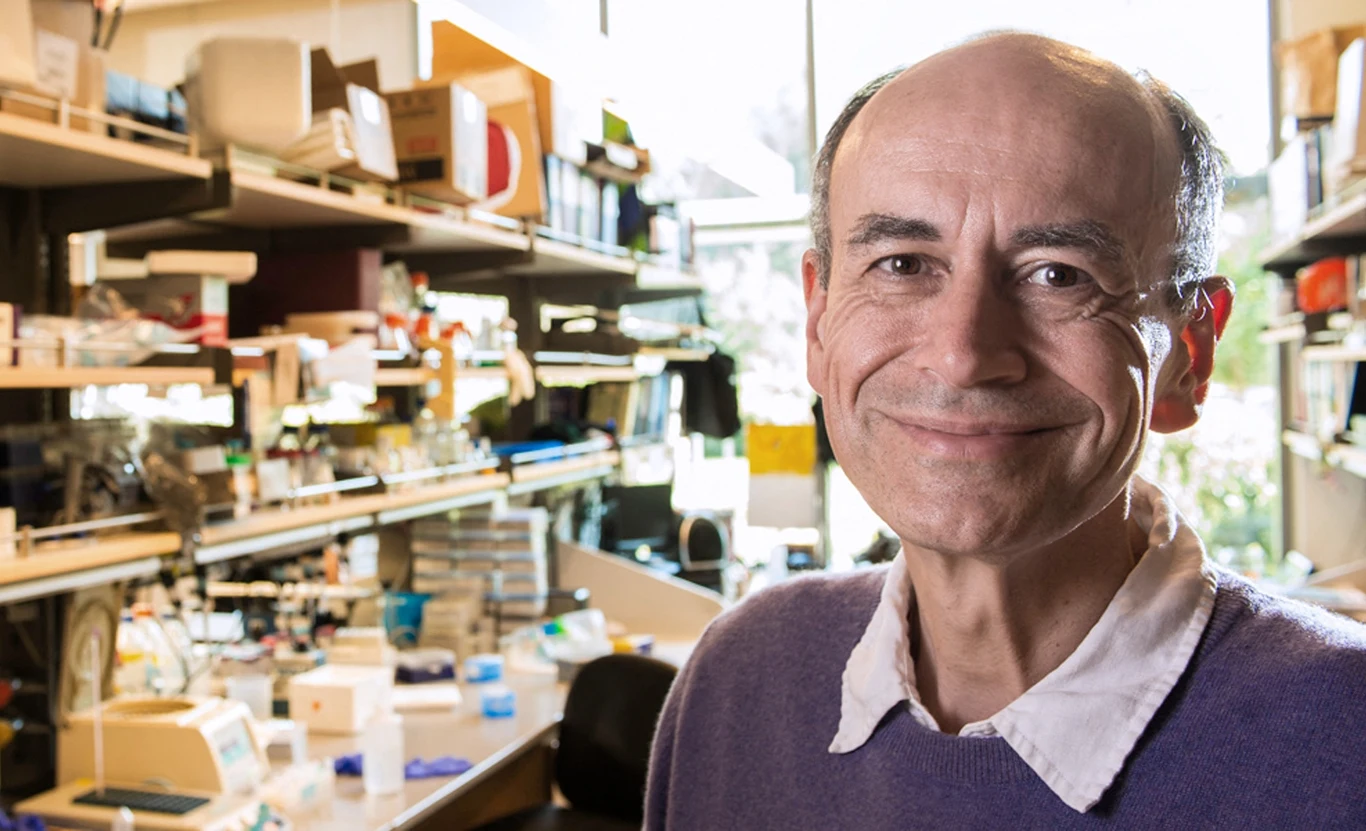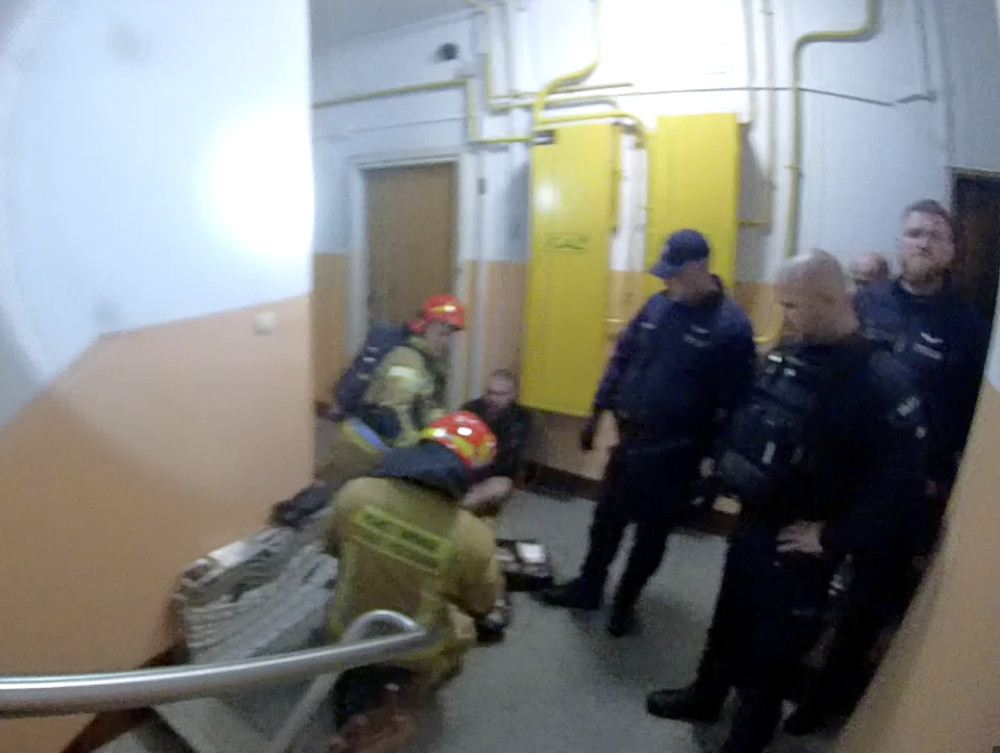Professor Wielomski on Frankfurt School, that is, ignorance and nonsense (part 3)
We already have the last part of the polemics with besides prof. Adam Wielomski, the 3rd vote in the conflict on the Wielomski-Karon line. In summary, I will collect respective opinions from this scientist on various insignificant aspects of his overall imagination of Marxism. Then I'm going to show by operating with facts why he made cardinal mistakes in his analysis.
LINK: The first part of the survey that outlines the essence of the conflict of Karon – Wielomski.
LINK: The second part of the survey discussing the essence of the conflict of Caron – Wielomski.
Stereotypic explanation of Marxism
Miserable dialectical materialism and relations between base and superstructure. As quoted in the erstwhile part of Prof. Wielomski's text "Marxism and Cultural Marxism" reads:
The concept of “cultural Marxism” is an interior contradiction besides due to the logic of Marxism itself, due to the fact that Marx teaches that “the base” (ownership) determines “overbuilding” (world of ideas). So how could the planet of ideas be Marxist while maintaining private ownership and capitalist production system?
As I have a habit of working on sources, I would like to give the level to myself. Frederick Engelswhich already in 1890 in a letter to Joseph Bloch explained the question of misinterpreting Charles Marx' theory:
According to the materialistic knowing of past at a minute at last instance The production and reproduction of real life are decisive in history. Neither Marks nor I have always claimed anything more. So if individual distorts it and claims that the economical minute is one The decisive factor, it transforms this thesis into an unspeakable, abstract, absurd phrase.
Surprise? Let's take another look:
Economic position is simply a base, but various superstructure moments – political forms of class conflict and its results: the systems established after winning the conflict by the winning class, etc., legal forms, and even reflection of all these actual battles in the brain of their participants, political, legal, philosophical, spiritual views and their further improvement into dogmas systems – besides influence the course of historical battles and in many cases they find their form. We have the interaction of all these moments, with economical movement as a necessity yet paving the way through all this infinite multitude of randomities (i.e. things and events whose interior relation is so far or so hard to show that we can consider it nonexistent and not take into account).
In another words, Frederick Engels explicitly states that the alleged rule of unilateral superstructure determination by the base is distortion. There is simply a feedback in Marxism, i.e. the base affects the superstructure, and the superstructure on the base, although of course the "first" was the base erstwhile it comes to the order of occurrence. Engels makes a peculiar request in further passages of the letter:
I would then ask you to survey this explanation on the basis of first sources, not second-hand sources – this is truly much easier.
Finally, he explains in the tide of honesty probable causes of misreading Marx's theory:
The fact that young people sometimes attribute more importance to the economy than is due is most likely partially the responsibility of Marx and mine. In the controversy with our opponents, we had to stress the rule of primacy which they had denied, and so we did not always have much time, space and chance to take due account of the remaining moments active in the process of common interaction.
So, as we can see, and Engels frequently emphasizes, it is very crucial that "the remaining moments active in the process of interaction". The same, due to the fact that the superstructure besides affects the base. There's no uncertainty about it. Interesting information is besides provided by prof. Harry Cleaver in "Politic Capital Reading". In this paragraph, I will make his thesis very briefly, as an extended explanation would be far confused. Well:
Ignored the eleventh thesis of Feuerbach, in which Marx accounted for philosophy, Engels attempted to reinterpret the relation between Marx and Hegle, depicting “marksism” as both a reversal and a correction of the Heglowski system.
Clearer in the longer chapter explains how Engels is actually behind the formulation of the full explanation of materialism dialectical, not only against Marx's intentions, but basically conflicting with its first writings:
As an orthodox version of philosophical Marxism, the diamond originates from times Anti-Dühring, Louis Feuerbach and the dusk of classical German philosophy and Natural dialects Engels. In these works, Engels attempted to build from Marxian capital analysis a universal philosophical strategy that would include not only the full of human history, but besides nature.
And as he concludes:
This simplified approach was adopted in 1 form or another by people associated with the Second global (e.g. Kautsky in Agricultural issuesLenin Development of Capitalism in Russia). The difficulties are known. This is usually driven by pure economical determinism – the way production unilaterally determines the superstructure. [...] Historical materialism was yet simplified even more by Stalin, who made it a rigid single-line advancement of the production methods through which all societies must pass.
It can so be assumed that philosophical divatations in dialectical materialism are only certain theories super-built to the ideology of Charles Marx, but fundamentally transcending the concrete and criminal in its essence the plan of the political overthrow which was contained in "Manifest of the Communist Party” of 1848. Marx definitely ended up with philosophical expressions after writing “Feuerbach too“ (1845), and Engelsowskie, Leninowskie, Bucharinowskie, Lukácsowskie or Stalinowskie thesis about the basis or superstructures are to a lesser degree attempts to justify political and economical change. More simply, it was a beautifully sounding slogan to justify the communist rule.
Critical explanation and Sexual Revolution
In an interview “In Krzysztof Karonia’s edition – typically Lenin explanation of Charles Marx" given to CEPolska channel Prof. Adam Molimski stated:
I would call them not “a Frankfurt School”, but “critical theory”—they called themselves that.
Let me get this straight. Frankfurt School is simply a common name Horkheimer, or ideologists operating since 1930. The Institute of Social investigation itself was founded in 1923 and its first employees, mainly theorists austromarksismis no longer part of Frankfurt School in the strict sense of the word. The Frankfurt School, of course, created the Institute, but this is simply a separate chapter in the past of this institution, listed precisely due to the fact that it yet abounded in the birth of an effective revision of Marxism. However, ‘Critical theory“ is the name of the ideology developed by the Frankfurters, which is simply a certain extension of Charles Marx’s “practice-critical activity” (the phrase from “The Thess about Feuerbach”). This is, in a scapologically speaking, the justification for the continuing criticism of the position of quo and the dismantling of the conventional system, which is based on repression, exploitation and injustice. The Frankfurters were not called ‘critical theory’ – this is mixing the method name with the group name.
In the same interview we can hear:
Paradoxically Horkheimer came from specified bourgeois German-Jewish family, very conservative. He only taught about sexual emancipation, and he himself did not practice it in any way.
The usage of the word "paradoxically" in this conviction forces me to admit that Prof. Wielomski either does not truly realize Frankfurt School, or simply pretends with disarming innocence. In general, I get the impression that Mr. prof. for the purposes of polemics with Krzysztof Karon rapidly read something about Frankfurters and memorized respective anecdotes. That would explain the curiosity mistakes he made, and only in 1 conversation. First of all, there is no paradox here – just as the communists have always wanted to expropriate others, and themselves to constitute a organization avant-garde in power, so the Frankfurters have implemented a sexual revolution precisely in order to verbally "orphan" others. I'm amazed that Max Horkheimer He himself did not submit to his own ideology, but simply created social control tools, he beats in his eyes the conviction of any good intentions contained in Marxism, as though in any of his "Humanistic testiclesIt’s okay. ” The example of Horkheimer, who supposedly died erstwhile he saw the bare breasts of students, is simply a complete confusion of characters. This scene did indeed take place, but active Theodore Adorno, who was assaulted in April 1969 by 3 feminist students accusing him of preaching conservative views (so-called. Busenaktion). At the time, Adorno did not "have a heart attack and died" due to the fact that he actually died a fewer months later, in August of the same year. For a heart attack – that's right.
Summary of the objectives of the Frankfurt School
In conclusion – due to the fact that we gotta end slow due to the volume of the text – I have shown in earlier paragraphs, and in the 2 erstwhile parts, that in the dispute on the Wielomski line – Karon unfortunately Prof. Wielomski showed far-reaching ignorance indicating the ignorance of the subject (as I mentioned, in my opinion, it is the consequence of fast and small exemplary catching up), and besides a immense shoe. Just callback the fact that he did not read the book "History of Anticulture" (sic!) at all and did not watch his films on the channel "Art History“ However, he utilized the “professor argument”, which is extra-material and useless, insulting the interlocutor by publishing unfunny memes on his Facebook page, and consistently refusing to appear in public debate.
The arguments and origin quotes cited by me clearly pointed out that the Frankfurt School remained a Marxist trend that closely imitated Karl Marx's intentions. The alleged inability to influence the superstructure on the base was considered by Frederick Engels himself to be "non-speaking, abstract, absurd phrase". Prof. Cleaver's extended explanations leave no uncertainty that dialectical materialism as a doctrine is simply a built-in theory, not having much in common both with Marx's political program formulated in 1848 in the "Communist organization Manifesto" as well as his earlier writings from the current Young Helgian. In another words, in the face of the birth of the 2nd part of the polemic of advanced capitalism (later capitalism, state capitalism), as well as the defeat of the communist revolution in the West, the Frankfurters simply revised Marx's assumptions, which proved to be wrong, and not for the first time. Forced by external circumstances, they had to make a fresh approach to overthrow the capitalist system, and it proved to be implemented Sexual Revolution – but not to demoralize someone, just to prevent members of society from working efficiently, organizedly, requiring precision, focus and motivation in 1 aspect, and in another education, profession and qualifications. All these elements deprive people, especially children and youth, of aggressive sexual education, disrupting the natural improvement of an individual yet socializing to function in the system. Those incapable to function in the capitalist strategy will clearly search to overthrow it. On the another hand, the capitalist system, which lacks full and willing workers, will simply gotta fail. Then, with the hands of the controlled masses, it will be possible to overthrow the old order and bring a fresh – communist one, which the Frankfurters have been after. Like all Marxists.
Bibliography
1. Cleaver H., Introduction [in:] Political Capital Reading, Poznań: The Trojka Brotherhood Publishing House, 2011, http://la.utexas.edu/users/hcleaver/357k/RCP_final_Intro.pdf
2. Engels F., Letter to Joseph Bloch in Kingship, 21 September 1890, http://marksizm.edu.pl/publications/classical-think-marksist/fryderyk-engels/list-do-jozefa-blocha-w-crawl-21-September-1890-year/
3. Multi-male A., Marxism and Cultural Marxism, The Conservatism.pl, https://conservatives.pl/multi-marksism-and-marksism-cultural/
4. Multi-male A., In the edition of Krzysztof Karonia – typically Leninist explanation of Charles Marx, 2020 https://youtu.be/HtIwrTtW56g







![Urząd skarbowy skontroluje osoby, które wysłały taki przelew. Wystarczy choćby mała kwota [18.02.2026]](https://warszawawpigulce.pl/wp-content/uploads/2025/10/Pieniadze-banknoty-wazne200i1003888.webp)






